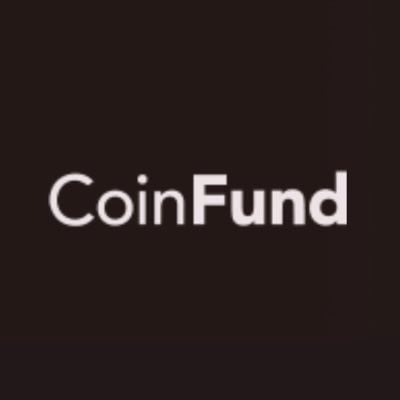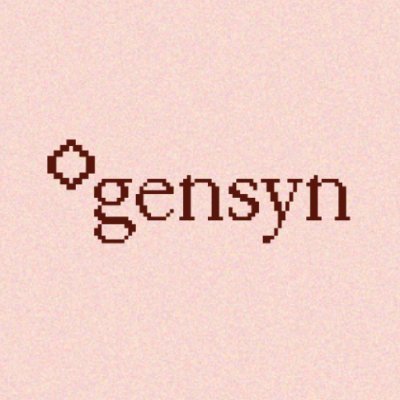RootData: How does CoinFund, managing over $540 million in crypto venture capital, select projects for investment?
Author: Gu Yu & Biscuit, RootData
As one of the most comprehensive investment and financing databases in the cryptocurrency industry, RootData has recorded over 5,000 Web3 industry investors and more than 5,700 investment and financing records, providing a comprehensive view of the investment trends in the cryptocurrency sector.
Based on this data, RootData will analyze a series of well-known venture capital funds, including their development history, investment preferences, and other information. This issue's research subject is CoinFund.
I. Overview
CoinFund is an investment and research institution focused on cryptocurrency, founded in 2015 and headquartered in Brooklyn, New York. Its latest established mission is to support the leaders of the new internet. In early 2016, the fund became known for its active Slack community and participation in cryptocurrency project podcasts, discussing topics such as the "fat protocol hypothesis," cryptocurrency value capture, and enterprise blockchain.
According to RootData, CoinFund's first public investment occurred in August 2017 when it participated in the ICO fundraising of District0x. Since then, CoinFund has gradually increased its investment frequency and established a significant reputation in the industry.
In 2018, CoinFund collaborated with Venrock, a venture capital firm under the Rockefeller family, and was seen as a leader in bringing traditional capital into the cryptocurrency space. Venrock partner David Pakman stated that he saw an increasing number of experienced founders and traditional tech companies entering the blockchain field and hoped to collaborate with CoinFund to participate in the design of various cryptocurrency economies and token projects. A few years later, David Pakman also joined CoinFund as a managing partner.
Currently, the CoinFund team consists of about 30 people, with Jake Brukhman as the founder and CEO. He previously worked at hedge fund Triton Research and Amazon. Most of the time, the CoinFund team directly participates in the design process of investment projects and provides networking services, team time, and other resources to its portfolio companies.
In terms of fund size, CoinFund has disclosed the launch of new funds every year since 2021, with fund sizes of $83 million, $300 million, and $158 million, respectively.
According to statistics from RootData, CoinFund has publicly disclosed a portfolio of 101 investments, with notable cases including Polkadot, Manta Network, Worldcoin, LayerZero, NEAR Protocol, Dapper Labs, Polygon, CoinList, Balancer, Archway, Secret Network, Acala, etc. Among these, CoinFund entered projects at the earliest stages, including Worldcoin, Internet Computer, CoinList, and The Graph. In the past year, it has made 18 investments, including Gensyn, Neutron, Manta Network, and Hyperlane.

II. Portfolio Analysis
From the 101 portfolio projects recorded by RootData, CoinFund has primarily invested in sub-sectors such as infrastructure, DeFi, CeFi, and NFTs. Among them, infrastructure projects account for 37.6%, while DeFi and NFTs account for 14.8% and 10.8%, respectively.

Based on the scale of participation, CoinFund's most frequent investment range is between $1 million and $3 million, totaling 27 investments. However, overall, CoinFund's investment distribution across different amount ranges is relatively even, with most having more than 15 investments.
From the perspective of leading investment rounds, CoinFund has led 24 out of 106 investment rounds within the statistical scope, achieving a leading rate of 22%, placing it among the top ten of all cryptocurrency venture capital firms. This also reflects CoinFund's strong belief in the projects it invests in.

Jake Brukhman revealed in a 2020 interview that CoinFund's investment logic is to invest in products that possess core value propositions of cryptocurrency networks and are highly competitive compared to traditional products. After operating for 9 years, CoinFund's investment logic has not remained static and can be divided into three stages.
1. Bear Market Construction Period
In the bear market following the 2017 ICO boom, CoinFund realized it should focus on emerging fields while market regulation had significant uncertainties. Therefore, its investment strategy shifted to focusing on Web3 protocols while avoiding CeFi services. Additionally, its investment characteristic is highly selective of projects but follows multiple rounds.
In nearly three years after the end of 2017, CoinFund only invested in 11 cryptocurrency projects, including Internet Computer, NFT lab Dapper Labs, and cryptocurrency data analysis and research institution Messari, which received two investments from CoinFund.
Additionally, CoinFund also invested in token sale platform CoinList, decentralized data network Ceramic, blockchain data indexing protocol The Graph, and privacy infrastructure NuCypher.
2. Focus on the Growth of DeFi and NFTs
During the period from 2020 to 2022, CoinFund noticed an increase in consumer adoption and interest in DeFi and NFTs, which prompted them to shift their focus to these areas, as well as products and demands centered around developer infrastructure and middleware.
This period also marked a peak for CoinFund's investments. According to RootData statistics, from 2020 to 2022, CoinFund invested in a total of 82 rounds, leading 19 of them. Notable projects include:
- Infrastructure: Blockdaemon, Polygon, Manta Network, LayerZero, Gensyn…
- DeFi: Balancer, Opyn, Ondo Finance, ParaSwap…
- NFTs: Rarible, Cryptoys, NFTfi
During this time, 8 cryptocurrency projects received multiple rounds of investment from CoinFund. Furthermore, CoinFund's financing rounds also became increasingly later-stage, moving from early seed rounds to Series A and even Series B rounds.

3. The Path Forward After the FTX Collapse
In November 2022, the collapse of the FTX empire dealt an unprecedented blow to the cryptocurrency sector. CoinFund was an early investor in FTX, and although it did not hold any FTT tokens at the time, a small amount of equity was written down to zero due to the collapse.
CoinFund managing partner and head of venture capital David Pakman believes that blockchain has not failed. Smart contracts were not hacked. The collapse of centralized exchanges has also led to increased attention on the DeFi sector, including Layer 1 and Layer 2, NFTs, gaming, and more.
Therefore, after November 2022, CoinFund only invested in 11 rounds, with a style more inclined towards decentralized protocols, including multi-module ecosystem Manta Network, smart contract platform Neutron, cross-chain aggregation protocol LI.FI, and more.
III. Introduction to CoinFund's Portfolio (Partial)
Intu is a decentralized protocol that uses native cryptographic sharing and any EVM-compatible chain to achieve shared ownership of digital assets. This means users can easily share, recover, or even change ownership of assets while maintaining the security and integrity of their accounts. Intu's efficient integration can enhance the user experience of any dApp or wallet.
Tableland Network is a decentralized Web3 protocol for structuring relational data, supporting Ethereum and EVM-compatible L2. Tableland aims to create Web3-native relational tables.
Gensyn is a distributed computing network for training AI models. The network uses blockchain to verify whether deep learning tasks have been executed correctly and triggers payments through commands.
Neutron is a permissionless smart contract platform built using the Cosmos SDK, allowing smart contracts to utilize cutting-edge Interchain technology with minimal overhead.
Giza is building a trustless protocol that decentralizes the process of machine learning inference computation while powering the open economy of open-source artificial intelligence. Giza enables AI developers to easily generate zero-knowledge proofs for AI models.
Sherlock protects DeFi users from protocol hacks through internal security analysis and platform-level coverage, being the first smart contract audit insurance provider to offer up to $10 million in coverage for audit clients.
Comm is an encrypted native messaging application based on joint key servers, aiming to be a privacy-focused, decentralized alternative to Discord. Comm allows community members to host their own backend servers, ensuring that only users can access their data.
Fuel is a UTXO-based modular execution layer that brings globally accessible scalability to Ethereum. As a modular execution layer, Fuel can achieve global throughput in ways that a monolithic chain cannot, while inheriting Ethereum's security.
Archway is a public chain based on the Cosmos architecture that provides fast and low-cost transactions while integrating developer incentive mechanisms into the protocol itself. These protocol-level incentives offer a more inclusive design by providing value-added mechanisms for validators, delegated token holders, and developers.
Primex Finance is a cross-chain liquidity protocol for margin trading across DEXs, featuring a trader scoring mechanism. Lenders can flexibly manage their risk and return by providing liquidity to various risk buckets (subsets of liquidity pools that regulate trader risk strategies).
Ceramic is a decentralized network for managing and processing mutable information on an open network. By combining IPFS, libp2p, blockchain, DID, and authentication data standards, Ceramic enables developers to use dynamic, verifiable, and decentralized data to build completely serverless applications.
DIMO is a decentralized software and hardware IoT platform that allows users to create verified vehicle data streams to share privately with applications, enabling users to negotiate better services such as auto financing and insurance.
Ondo Finance is building a decentralized investment bank focused on connecting stakeholders in the emerging DeFi ecosystem, including decentralized autonomous organizations (DAOs), institutions, and retail investors.
Syndicate is a decentralized investment protocol and social network that will enable communities to raise, coordinate, and invest capital. It will provide a fair competitive environment for builders, creators, influencers, and friends' communities to invest in new ideas and world-changing technologies, introducing a new investment model to society.
Magic is a wallet-as-a-service provider that helps businesses create instant non-custodial wallets to onboard users into web3. It uses email or social login while eliminating the need for seed phrases and browser extensions.
IV. Summary and Outlook
Overall, CoinFund has become one of the most influential cryptocurrency venture capital firms in the industry, thanks to its excellent investment performance and emphasis on research, leading investments, and post-investment services. Affected by the market, CoinFund significantly reduced its investment frequency after April 2022, averaging only two rounds of participation per month.
In July of this year, CoinFund published a retrospective article on its 8th anniversary, discussing its past investment strategies and future outlook. CoinFund stated that due to a small client base and limited proprietary advantages in the open-source field, it had overly focused on certain sub-industries such as data and analysis, thereby missing the significant demand from non-cryptocurrency participants for fundamental security and compliance services. Additionally, CoinFund mentioned three important adjustments made in the past year, which are to place more emphasis on leading or co-leading roles, increase capital reserves, and re-emphasize on-site due diligence.
2023 is a year for CoinFund to refocus on DeFi and infrastructure, emphasizing the importance of scalability, interoperability, and developer tools. They are also looking towards more real-world applications and use cases. Furthermore, CoinFund will continue to advance the exciting emerging field of AI x Web3 and provide follow-up funding for Gensyn as well as new investments in Giza's smart contract AI model inference.
References:
《Episode 256 CoinFund -- Crypto-Investing by Community Building》
《CoinFund Turns 8: Building and Managing a Web3 Investment Firm》
《Crypto VC David Pakman on FTX: An 'entirely avoidable tragedy'》
《The Richest Rockefeller Family in American History: May Enter the Cryptocurrency Field》
















